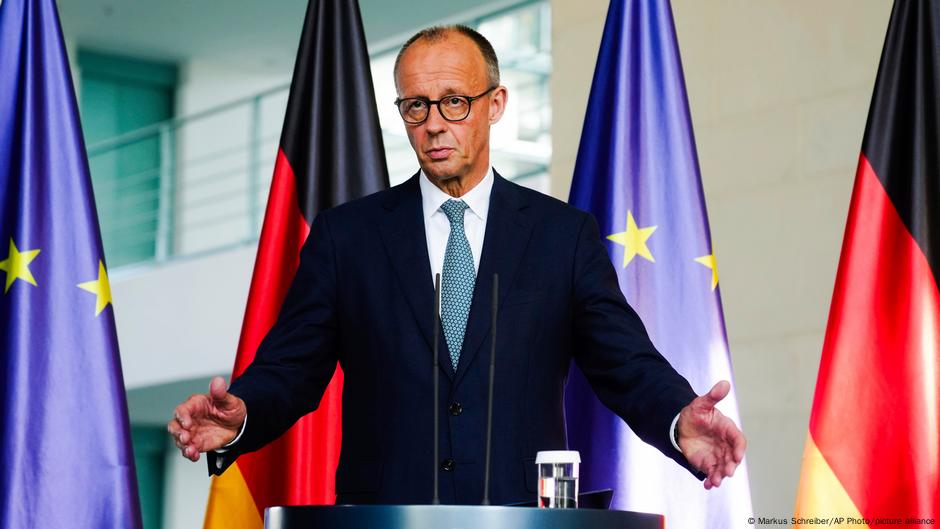
Voter Confidence in Chancellor Friedrich Merz Remains Low
The latest Deutschlandtrend poll highlights a lack of confidence among German voters in Chancellor Friedrich Merz. The survey reveals that many citizens are concerned about the impact of US tariffs on the German economy and want the government to exert more pressure on Israel. This sentiment reflects a complex political landscape as Merz's administration navigates both domestic and international challenges.
Germany’s Stance on Israel and the Gaza Strip
Chancellor Merz, who has been in office for nearly 100 days, has taken a firm stance on the conflict in the Gaza Strip. In May, he expressed confusion over Israel's objectives in the region. More recently, he called on Israeli Prime Minister Netanyahu to reduce the suffering of the two million people living in the area. Unlike France, the UK, and Canada, Germany has not recognized a Palestinian state. In response to the ongoing conflict, the German government imposed a partial export ban on military equipment to Israel, stating that no exports of such equipment would be approved until further notice.
Despite these measures, public opinion remains divided. According to the latest poll, a majority of voters believe the chancellor should increase pressure on Israel. However, the fate of hostages held by Hamas continues to be a primary concern for many Germans.
A Shift in Public Perception
Merz and his predecessor, Olaf Scholz of the Social Democratic Party (SPD), have consistently emphasized Germany's special responsibility for Israel's existence. However, only 31% of voters surveyed this week still hold this view. The poll, conducted by infratest-dimap for ARD's "Deutschlandtrend," involved 1,321 eligible voters between August 4 and 6.
Focus on Foreign Policy and Domestic Challenges
Merz has prioritized foreign policy, visiting Donald Trump at the White House, supporting Ukraine against Russian aggression, and urging restraint from Netanyahu in the Gaza Strip. Domestically, the focus has been on combating irregular immigration. However, the pension, nursing care, and health systems require urgent reform, and the latest survey indicates a lack of confidence in the government's ability to address these issues effectively.
Political Landscape and Rising Far-Right Influence
The results of the February 23 general election showed a rise in support for the far right, and this trend has continued. Twenty-four percent of respondents now say they would vote for the Alternative for Germany (AfD) party. The CDU/CSU bloc remains the leading party with 27%, while the SPD, Greens, and Left Party maintain their positions.
Merz's popularity has declined since the election. While four out of ten respondents still believe he is up to the job, his own party's supporters are the most satisfied. Trust in Merz has also decreased, with only 26% of those surveyed now believing he can be trusted—three percentage points lower than in February.
Economic Concerns Over US Tariffs
US President Donald Trump's tariff policies continue to raise concerns in Germany. He has imposed a 15% tariff on most EU goods and 50% on steel and aluminum. The agreement with EU Commission President Ursula von der Leyen, which exempts US exports from tariffs, is highly controversial.
Germans remain worried about the economic impact of these tariffs. A clear majority of respondents in the latest poll express concern or even strong concern that these tariffs will harm the German economy. However, the level of concern has slightly decreased, attributed to the unpredictable nature of Trump's policies.
Long-Term Investment Plans
Over the next few years, €500 billion ($581 billion) will be allocated for new railways, roads, and better schools, with an additional amount for upgrading the Bundeswehr. This represents a shift from the Conservatives' campaign promise of avoiding new loans.
As Germany faces these political and economic challenges, the path forward remains uncertain. Voters are watching closely as the government attempts to balance its commitments and address the concerns of the public.
